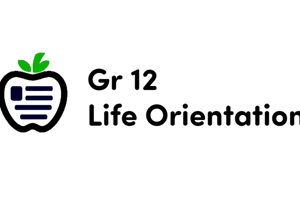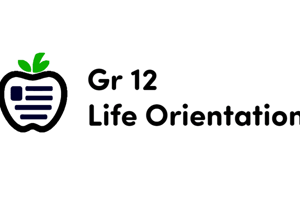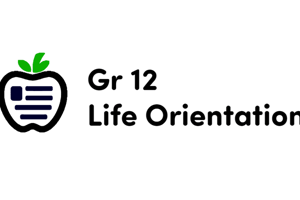Podcast
Questions and Answers
Life orientation refers to a person's emotional and psychological stance towards ______.
Life orientation refers to a person's emotional and psychological stance towards ______.
life
An ______ orientation focuses on potential benefits and solutions.
An ______ orientation focuses on potential benefits and solutions.
optimistic
Cultural background, life experiences, and social environment are factors influencing ______.
Cultural background, life experiences, and social environment are factors influencing ______.
life orientation
Self-reflection and personal evaluation can help individuals understand their ______.
Self-reflection and personal evaluation can help individuals understand their ______.
Developing a positive life orientation can lead to improved ______ and a more fulfilling life.
Developing a positive life orientation can lead to improved ______ and a more fulfilling life.
A ______ orientation acknowledges both opportunities and limitations.
A ______ orientation acknowledges both opportunities and limitations.
Practicing gratitude and mindfulness helps in developing a positive life ______.
Practicing gratitude and mindfulness helps in developing a positive life ______.
Life orientation is an important component in personal development ______.
Life orientation is an important component in personal development ______.
Flashcards are hidden until you start studying
Study Notes
Definition
- Life orientation refers to a person's emotional and psychological stance towards life.
- It encompasses beliefs, attitudes, and values that influence behavior and decision-making.
Key Concepts
-
Types of Life Orientation:
- Optimistic Orientation: A positive outlook focusing on potential benefits and solutions.
- Pessimistic Orientation: A negative perspective that emphasizes challenges and risks.
- Realistic Orientation: A balanced view that acknowledges both opportunities and limitations.
-
Factors Influencing Life Orientation:
- Cultural Background: Different cultures instill varied values and beliefs affecting perspectives.
- Life Experiences: Personal experiences shape one’s view of the world.
- Social Environment: Influence from family, friends, and society plays a crucial role.
-
Impact of Life Orientation:
- Affects mental health and emotional well-being.
- Influences relationships and social interactions.
- Determines coping strategies and resilience in facing adversity.
-
Assessment of Life Orientation:
- Self-reflection and personal evaluation can help individuals understand their orientation.
- Psychological tools and questionnaires may be used to assess life orientation.
-
Developing a Positive Life Orientation:
- Practice gratitude and mindfulness.
- Set achievable goals and focus on solutions rather than problems.
- Surround oneself with positive influences and supportive people.
- Engage in continuous learning and personal development.
-
Life Orientation in Education:
- Important component in personal development programs.
- Aims to foster resilience, critical thinking, and emotional intelligence among students.
Conclusion
- Life orientation significantly impacts individual behavior, decision-making, and overall mental health.
- Developing a positive life orientation can lead to improved well-being and a more fulfilling life.
Definition
- Life orientation refers to an individual's emotional and psychological approach to life.
- It includes beliefs, attitudes, and values that shape behavior and decision-making processes.
Key Concepts
-
Types of Life Orientation:
- Optimistic Orientation: Highlights a positive view focusing on potential benefits and solutions.
- Pessimistic Orientation: Centers around a negative view, emphasizing challenges and risks.
- Realistic Orientation: Strikes a balance, recognizing both opportunities and limitations.
-
Factors Influencing Life Orientation:
- Cultural Background: Wide-ranging values and beliefs from different cultures shape diverse perspectives.
- Life Experiences: Individual experiences play a crucial role in shaping one’s world views.
- Social Environment: The influence of family, friends, and broader society impacts personal outlook.
-
Impact of Life Orientation:
- Directly affects mental health and emotional well-being.
- Influences the quality of relationships and social interactions.
- Shapes coping strategies and levels of resilience when facing adversity.
-
Assessment of Life Orientation:
- Self-reflection and personal evaluation are vital for understanding one’s life orientation.
- Psychological tools and questionnaires can provide insights into individual life orientation.
-
Developing a Positive Life Orientation:
- Practicing gratitude and mindfulness can enhance overall outlook.
- Setting achievable goals encourages a focus on solutions rather than problems.
- Surrounding oneself with positivity and supportive individuals fosters a better orientation.
- Engaging in continuous learning promotes personal growth and development.
-
Life Orientation in Education:
- A critical aspect of personal development programs aimed at fostering resilience.
- Encourages the development of critical thinking and emotional intelligence among students.
Conclusion
- Life orientation has a profound impact on behavior, decision-making, and mental health.
- Cultivating a positive life orientation contributes to enhanced well-being and a more fulfilling existence.
Studying That Suits You
Use AI to generate personalized quizzes and flashcards to suit your learning preferences.



